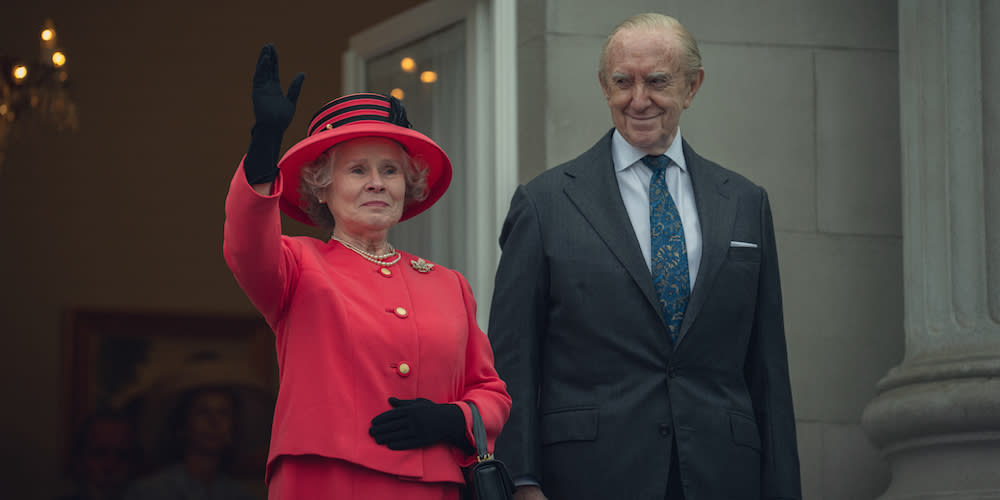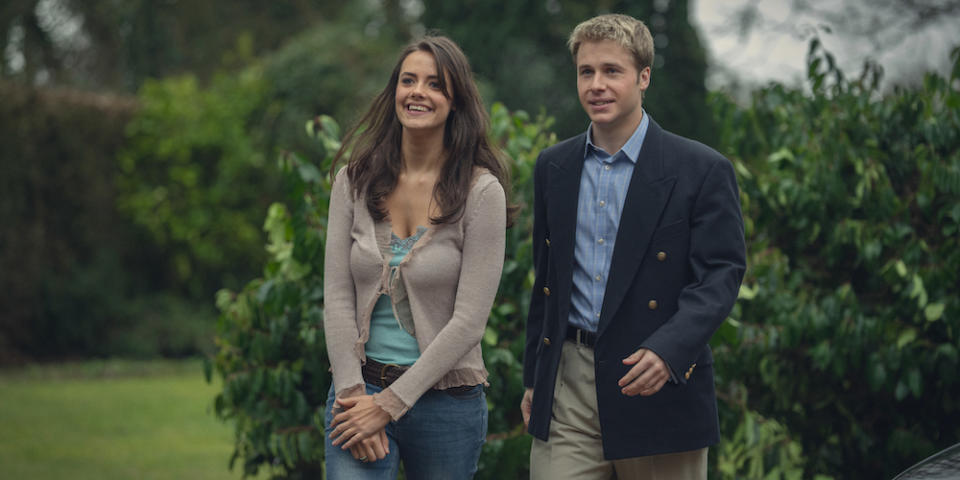‘The Crown’s’ Final Episodes Are Ritzy and Proper, Repetitive and Lacking

The fifth episode of “The Crown’s” final season — and the first entry in the short-awaited Part 2 — is titled “Willsmania” — an awkward, silly name from which the gloomy series derives zero pleasure. How could it? After all, Prince William (now played by Ed McVey, despite only a few months passing between episodes) is still mourning the loss of his mother, Diana (Elizabeth Debicki), even as the English people shift their collective grief for the Princess of Wales into an outpouring of affection for her eldest son. “Affection” may be a bit misleading. Young women and girls scream at the sight of him, gathered behind police barricades, begging for an autograph, photo, or a passing touch. They’re fanatical, and the teen who would be king handles it as best he can, before escaping to the semi-private University of St. Andrews.
“The Crown,” however, rarely shakes its own case of Willsmania. The final season feels more like a set-up for “Will: The College Years” than a cogent goodbye for Queen Elizabeth (Imelda Staunton). When looking at Netflix’s ornate original series through the shine of its royal headwear, the younger focus makes sense: Will is the heir apparent to the throne of England. One day, in all likelihood, he will wear the titular crown. Why not foreshadow his takeover by considering him now, at a formative age, when he’s still close with his granny? Well, because “The Crown” is really about his granny. It has been since well before William was even born. The dozens of monarchs who donned the crown before her are but a footnote in history — a precedent for her decisions, not flesh-and-blood characters — so emphasizing the future while still (ostensibly) grappling with the past seems like jumping the gun at best, and desperate, patriarchal, or tawdry at worst. (Much of William’s story in Season 6 hinges on romancing Kate Middleton, played by Meg Bellamy.)
More from IndieWire
Guillermo del Toro and J.A. Bayona Compare 'The Orphanage' to 'Society of the Snow' - Watch
Julia Child May Be the Most Famous Woman on 'Julia,' but She's Far from the Only One
Peter Morgan’s royal swan song feigns growth by dwelling on younger, more malleable characters, but the ending can’t hide a simplistic interpretation of its central subject. Season 6 tries, to its credit, to divulge Elizabeth’s thoughts and opinions. Episode 8, “Ritz,” is the most successful, as it gives itself over to Princess Margaret (Lesley Manville) and her most cherished memory of Elizabeth. But even that account is but a sliver of the whole; one conviction among many more that went unexplored or under-developed. Morgan, who writes or co-writes every episode, seems satisfied to define the queen’s legacy with one word — sacrifice — which can’t help but feel inadequate for a series constantly reaching for grandeur.
What’s especially nagging is another long-running complaint from “Crown”-a-holics: how often the Queen is ignored in favor of a man’s point of view. While the first half of the season (not to mention Season 5) abandoned Elizabeth in favor of Charles (Dominic West) and Diana, the second half strikes a better, if still disproportionate, balance, starting with the aforementioned Will-heavy entry. As the suddenly motherless young man struggles to process his loss, Morgan invites his father and grandfather (Jonathan Pryce) to offer guidance. Charles tries to make amends for his absent parenting. Philip reflects on his own paternal faux pas via yellowed footage of Matt Smith playing with baby Charlie. William shouts a little, broods a lot, and the three generations of masculine royalty forge a hard-fought path forward, together. Their conversations are laced with stinging pain and arduous regret, and the older actors do an especially fine job infusing momentary exchanges with the weight of decades-long relationships.
But that’s the men. The next episode, ostensibly centered on Elizabeth, is like switching from a fine point pen to coloring with crayons. Opening in a literal and figurative nightmare, the Queen has been dethroned in favor of rising political star Tony Blair (Bertie Carvel). When she awakes, her paranoia drives her to order a public poll be taken regarding the monarchy’s popularity. “The Crown doesn’t ask existential questions of itself,” one advisor says, while balking at a few survey questions, to which Queen Elizabeth replies, “Perhaps it should.”

It should! It should! But, alas, it does not. Episode 6, “Ruritania,” is less a confrontation of the monarchy’s legacy than an oddly framed defense of the way things were. Elizabeth’s actions are motivated by fear, and as soon as those fears are assuaged — in unconvincing, borderline unrelated fashion — she regresses to her old ways. I’m not about to argue that “The Crown” should abandon historical precedent so Elizabeth can properly question her privilege or politics, but there are certainly ways to do so within the strained ties to reality the series has already established. More to the point: Morgan is clearly capable of providing layered internal lives to his characters; it’s just far too often that those complexities are given to men, as exemplified in the preceding hour with William, Charles, and Philip — while Elizabeth, yet again, feels redundant.
To be fair, “The Crown” improves in Part 2 after the disastrous opening episodes. “Ritz” delivers a crackling performance from Manville, West proves to be particularly strong at painting — accurately or not — a playful, even boyish portrait of Charles, and the finale finds an effective plot to wrestle with Elizabeth’s passing (without any awkward flash-forwards or written codas). The show’s glitz and glamour remains, as well. Even if the increasingly dreary palette keep the splendor in check, one cannot dispute the general refinement seen through to the closing scene. (Expect a cameo or two before the Queen makes her grand exit, though Morgan thankfully doesn’t go overboard in this department either.)
Still, despite six seasons, 60 episodes, and three queens given to Elizabeth II, the ending can’t help but feel too easy, too familiar, and too plain. “The Crown” came out of the gate with all the signifiers of late 2010s prestige, from its booming theme (unmistakably from Hans Zimmer) to its sprawling cast, its period accuracy to its unrelenting self-seriousness. Morgan’s awards-courting Netflix original felt weighty and significant from the start, sparked to life here and there by fresh faces (Season 4 remains a late-era victory), but now, after all that time, it feels trapped by those trappings.
The series finale stresses a similar point as the first season’s ending, when Elizabeth makes the difficult choice to put her stately duties above personal sentiments for Margaret, Philip, and herself. Only now, the personal stakes and fiery emotions of her initial decision are gone. In their place is a frightened resolve — less a fear she may have been wrong, and more of an acknowledgement of the pain it took to do what’s right. That may work for older audiences, still stubbornly clinging to the past as some kind of golden-hued heyday, and it certainly gives the blaring impression of nobility. It may even be a true reflection of Queen Elizabeth II. I am not one to say either way. But it also reflects “The Crown” itself, a series only interested in a certain accounting of history, as indicated by Philip’s closing monologue and Elizabeth’s silent departure. For Queen and country, let this be the finish line.
Grade: C+
“The Crown” Season 6, Part 2 premieres Thursday, December 14 on Netflix. All episodes will be released at once.
Best of IndieWire
Sign up for Indiewire's Newsletter. For the latest news, follow us on Facebook, Twitter, and Instagram.


